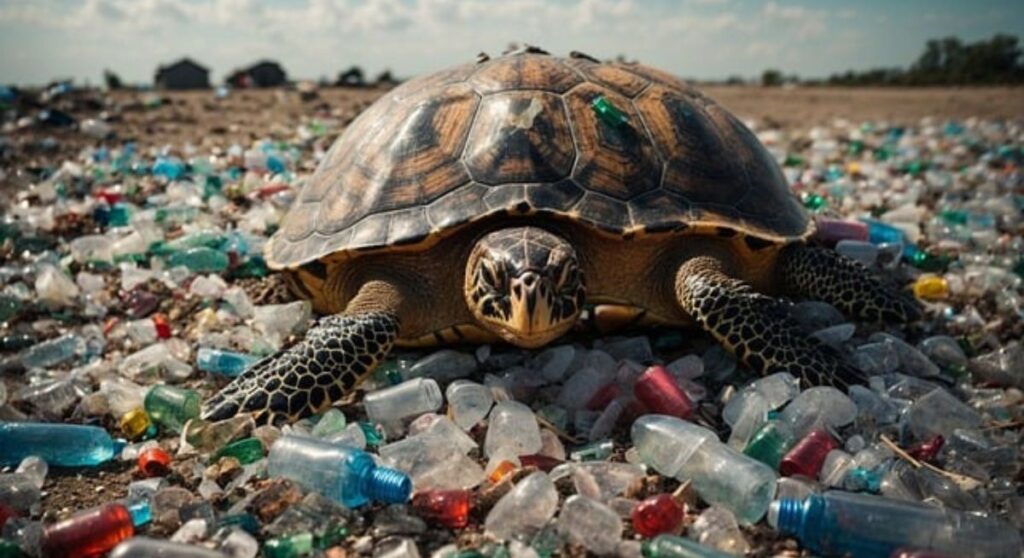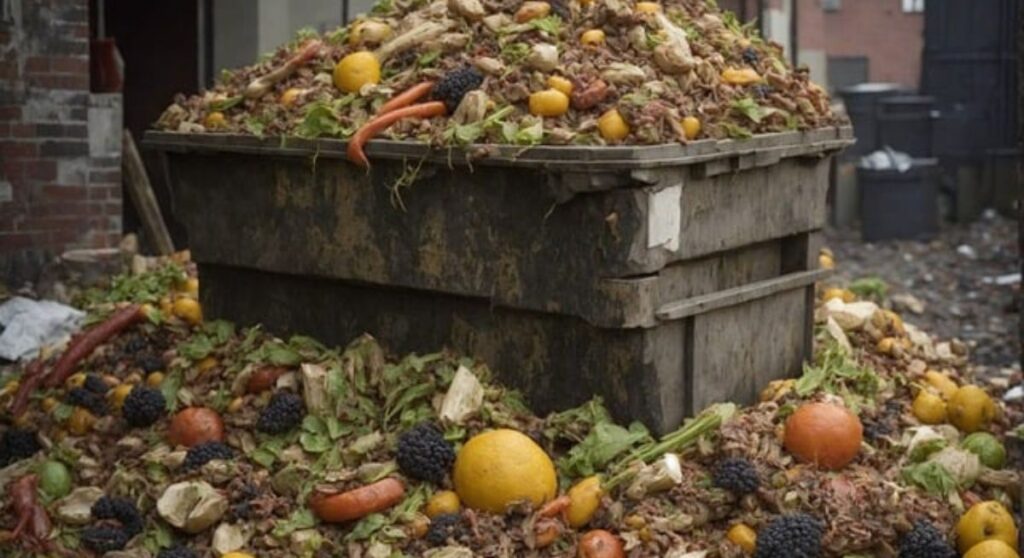Introduction:-
10 Effective Tips for the Safe Disposal of Open Waste

Unmanaged open waste presents considerable risks to the environment, health, and safety. Implementing proper disposal techniques can help decrease pollution, lessen hazards, and encourage sustainability. Whether you’re handling waste at home, in a business, or within a community, the following tips will steer you toward effective and safe waste management.
10 Effective Tips for the Safe Disposal
- Separate Waste at the Source
Effective waste management starts with proper waste separation. Categorize your waste into groups such as organic, recyclable, and hazardous materials. This straightforward action ensures that each type of waste is disposed of correctly, minimizing contamination and enhancing recycling efforts.
2. Utilize Designated Disposal Locations
A key component of safe waste disposal is utilizing designated waste disposal sites or collection points. Leaving waste in unauthorized areas leads to pollution, creates pest breeding grounds, and poses health risks. Verify with local authorities for the appropriate disposal locations.
3. Steer Clear of Open Waste Burning
Burning waste in the open releases harmful pollutants, including carbon monoxide, dioxins, and other toxins into the atmosphere. These substances not only harm the environment but also present significant health dangers. Rather than burning, choose eco-friendly alternatives like composting, recycling, or transporting waste to landfills.
4. Compost Organic Waste
Instead of discarding organic waste, like food scraps and garden trimmings, consider composting it. Composting transforms organic materials into valuable fertilizer for your garden, which helps reduce landfill waste and lowers methane emissions.
5. Recycle Whenever Possible
Materials like paper, plastic, metal, and glass are often recyclable. Establish a dedicated recycling bin and make sure that recyclable items are clean and uncontaminated. Recycling not only lessens the quantity of waste but also helps conserve natural resources.
6. Use Eco-Friendly Disposal Bags
When disposing of waste, especially non-recyclable items, always use eco-friendly disposal bags. These biodegradable bags break down naturally, minimizing their impact on the environment. Avoid using plastic bags, which take centuries to decompose and contribute to land and ocean pollution.
7. Dispose of Hazardous Waste Safely
Certain types of waste, such as chemicals, batteries, electronics, and medical waste, require special handling due to their hazardous nature. Always dispose of hazardous waste at dedicated facilities, where it can be treated and processed safely to avoid contaminating the environment.
8. Educate and Involve Your Community
Community participation is key to managing open waste disposal effectively. Organize neighborhood clean-up drives, spread awareness about proper waste disposal methods, and encourage others to adopt responsible waste habits. A well-informed community can make a significant difference in reducing waste-related issues.
9.Limit Single-Use Products
Single-use plastics and packaging are major contributors to open waste. By limiting the use of single-use items, such as plastic straws, bags, and containers, you can reduce the amount of waste generated. Opt for reusable alternatives, which are better for both the environment and your wallet in the long term.
10. Support Waste Management Initiatives
Many cities and organizations offer waste management programs or initiatives aimed at reducing, recycling, and properly disposing of waste. Support these initiatives by participating in recycling programs, composting projects, and clean-up events. The more people get involved, the better the overall waste management process will become.
What is the impact of open waste disposal on public health?
The Impact of Open Waste Disposal on Public Health

Open waste disposal, where waste is dumped in open areas without proper treatment, has severe consequences for public health. Here are some key impacts:
1.Spread of Diseases
Open waste attracts pests like rodents, flies, and mosquitoes, which carry diseases such as malaria, dengue fever, and cholera. These pests thrive in the unhygienic conditions created by open waste dumps, heightening the risk of disease outbreaks in surrounding communities.
2.Contamination of Water Sources
Leachate, a harmful liquid that forms when rainwater filters through open waste, can infiltrate groundwater and pollute nearby rivers, lakes, and wells. Consuming or using this contaminated water for irrigation can result in waterborne diseases like dysentery, diarrhea, and typhoid.
3.Air Pollution and Respiratory Issues
Burning open waste, particularly plastics, releases dangerous pollutants like carbon monoxide, dioxins, and particulate matter into the atmosphere. Prolonged exposure to these toxins can lead to respiratory issues, asthma, and other chronic lung conditions, especially among vulnerable populations such as children and the elderly.
4. Soil Contamination
Hazardous waste, including chemicals, batteries, and electronic refuse, dumped in open areas can leach toxic substances into the soil. These pollutants can disrupt plant growth, contaminate food crops, and eventually enter the human food chain, resulting in long-term health issues like cancer and neurological disorders.
5.Impact on Mental Health
Residing near open waste sites often contributes to stress, anxiety, and a diminished quality of life. Continuous exposure to unpleasant odors, unsightly refuse, and health concerns can lead to mental health challenges such as depression and anxiety.
6. Increase in Antimicrobial Resistance (AMR)
Improper disposal of medical and pharmaceutical waste in open areas can exacerbate the issue of antimicrobial resistance. Bacteria in the waste that are exposed to antibiotics can develop resistance, complicating infection treatment and contributing to the emergence of “superbugs.”
The effects of open waste disposal on public health are significant, ranging from the spread of infectious diseases to lasting environmental damage. Effective waste management practices, including recycling, composting, and utilizing designated disposal sites, are crucial for safeguarding communities from these health hazards and fostering a healthier environment for everyone.
How can communities work together for better waste management?
Effective waste management relies on a collective effort from individuals, local authorities, and organizations. Communities are crucial in minimizing waste, promoting recycling, and ensuring proper disposal methods. Below are key strategies for communities to collaborate and enhance waste management:

1.Organize Community Clean-Up Drives
Regular community clean-up events are one of the simplest yet most impactful ways to manage waste. These initiatives unite people to collect litter, eliminate illegal dumping, and raise awareness about maintaining clean public spaces. Such activities encourage participation and foster a sense of accountability.
2.Promote Waste Segregation at the Source
Communities can implement programs that encourage residents to separate waste at home into recyclables, organic waste, and non-recyclables. By providing clearly labeled bins and educating residents on proper sorting, managing and recycling materials becomes simpler, easing the strain on landfills.
3.Set Up Recycling Programs
Local governments or community groups can create drop-off points or curbside recycling initiatives. Encouraging residents to recycle paper, plastic, glass, and metals can significantly decrease the volume of waste sent to landfills. Collaborating with local recycling centers can enhance accessibility and streamline the process.
4.Encourage Composting
Organic waste, such as food scraps and yard debris, can be transformed into nutrient-rich compost instead of being discarded. Communities can promote home composting through workshops, providing compost bins, or establishing communal composting sites. This approach helps mitigate methane emissions from landfills while producing valuable fertilizer for gardens.
5.Raise Awareness Through Educational Campaigns
Informing the public about effective waste management practices is essential. Communities can collaborate to distribute information on the significance of reducing, reusing, and recycling. Local schools, libraries, and community centers can host workshops, seminars, and informational events to educate residents.
6.Collaborate with Local Authorities
Engaging actively with local authorities is vital for ensuring effective waste collection, recycling, and disposal services. By working together, residents can identify problem areas, propose solutions, and advocate for improved infrastructure, such as more frequent collection services or additional recycling facilities.
7.Incentivize Waste Reduction and Recycling
Programs based on incentives, such as “pay-as-you-throw” systems, reward households that generate less waste. Communities can implement reward systems recognizing individuals or groups that consistently recycle or minimize waste, motivating more sustainable practices.
8.Form Waste Management Committees
Communities can establish waste management committees composed of volunteers or local representatives. These committees oversee waste management initiatives, organize events, communicate with local authorities, and devise strategies for improved waste handling. They can also monitor illegal dumping and tackle arising issues.
9.Support Local Eco-Friendly Businesses
Supporting sustainable businesses, such as zero-waste stores or those that prioritize minimal packaging, contributes to waste reduction. Communities can collaborate with local businesses to promote eco-friendly products and encourage the use of reusable bags, minimizing packaging waste.
10.Advocate for Policy Changes
Communities can unite to advocate for legislative changes that enhance waste management. Pushing for policies, such as banning single-use plastics or tightening recycling regulations, can drive systemic change that benefits everyone.
Communities play a pivotal role in establishing a sustainable waste management system. By collaborating through clean-up events, recycling programs, education, and partnerships with local authorities, they can significantly lessen the environmental impact of waste and promote healthier, cleaner living environments. When everyone contributes, waste management becomes more efficient and sustainable.
Conclusion
Safe disposal of open waste is not just an individual responsibility but a collective effort to protect the environment and public health. By following these 10 effective tips, you can significantly reduce the impact of waste on your surroundings and contribute to a cleaner, safer world. Small actions like waste segregation, recycling, and community involvement go a long way in creating sustainable waste management practices.
References
World Health Organization (WHO) – Guidelines on proper waste management and its impact on public health.
https://www.who.int/news-room/fact-sheets/detail/waste
Environmental Protection Agency (EPA) – Resources on safe waste disposal, recycling, and hazardous waste management.
https://www.epa.gov/recycle
United Nations Environment Programme (UNEP) – Reports and initiatives focused on waste management and sustainability.
https://www.unep.org/resources
The National Waste & Recycling Association (NWRA) – Information on proper waste disposal and industry best practices.
https://wasterecycling.org/
Greenpeace – Insights into the dangers of open waste, plastic pollution, and advocacy for sustainable waste solutions.
https://www.greenpeace.org/international/
National Institute of Environmental Health Sciences (NIEHS) – Details on the health effects of waste and environmental pollutants.
https://www.niehs.nih.gov/health/topics/agents/waste/index.cfm

